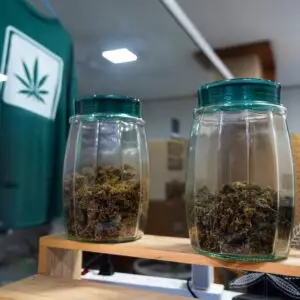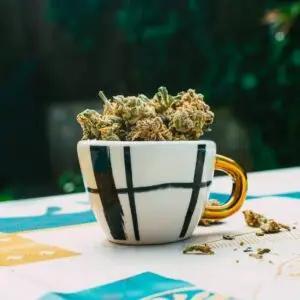The Origins of the Term Stoner
Stoner: noun (slang): a person who is habitually high on drugs, especially marijuana, or alcohol; a person who is usually stoned.
It feels like the word “stoner,” a term used to describe cannabis consumers, has been part of the lexicon forever. Like many of the words we use, the definition of the term “stoner” has evolved over time, shedding some of its derogatory origins and adapting its meaning to fit in a more cannabis-friendly culture.
What is a Stoner?
Aside from the dictionary definition, the word “stoner” is used to loosely describe a person who gets high or “stoned” on cannabis.
Unclear Etymology
The term stoner can trace its roots all the way back to biblical times and was used throughout the 1920s and 1930s, but according to the Merriam-Webster Dictionary, it wasn’t until 1952 that it became closely associated with cannabis. The use of the term stoner became more widespread as cannabis use increased in the 1960s and 1970s. Today, the term is hotly debated due to its disparaging history, as some seek to redefine the term while others look to leave it in the past.
Biblical use: “stoner” can trace its roots to the term “stoned,” a word used to describe the punishment of sinners by pelting them in public with stones. This is one reason that the word stoner often has a negative connotation.
The 1920s and 1930s: people started to use the word “stoned” or “stone drunk” in the 1920s and 1930s to describe people heavily under the influence of alcohol. It’s probable that the word was used to describe the appearance of someone extremely drunk—a quality it shares with other similarly defined terms from the era such as potted, plastered, stewed, and tanked, as well as more modern words like hammered and smashed.
The 1950s: the term “stoned” became more commonly applied to cannabis, rather than alcohol, use in the 1950s. As mentioned above, Merriam-Webster traces it back to 1952, but the world’s most notable appearance was in the glossary of the 1953 book, The Traffic of Narcotics. The book was co-written by Harry J. Anslinger—Commissioner of the U.S. Treasury Department Bureau of Narcotics from 1930 to 1962—whose checkered legacy is notable for his anti-drug position, racism, and being the founding father of the War on Drugs.
The 1960s and 1970s: as cannabis became more widely used in the 1960s and 1970s, the term stoned became more common and made numerous appearances in pop culture—for example, the Rolling Stones’ 1963 song Stoned and Bob Dylan’s 1966 Rainy Day Women #12 and 35, better known for its refrain “Everybody must get stoned!”
Other Origin Theories of the Word Stoner
In addition to the more established origins of the term stoner and how it relates to cannabis, there are some other ideas as to where the word came from, including:
The word is derived from the Italian word stonato, which means confused or foggy.
The term evolved from the stone pipes that were popular for smoking cannabis in the 1970s.
The word is used to describe the often immobilizing effect cannabis can have.
The Evolving Meaning of “Stoner”
Language is fluid and just as the meaning of the word stoner changed from the 1920s to the 1950s to the 1970s, it continues to do so today. With the number of states legalizing cannabis on the rise and an overall shift in attitude toward cannabis in general—an overwhelming 91% of U.S. adults say either that marijuana should be legal for medical and recreational use or that it should be legal for medical use only—being called a stoner doesn’t have the same pejorative undertones as it once did.
To some, being seen as a stoner not only has lost its stigma, it’s actually a good thing. This shift in perception is thanks in part to the growing number of famous and well-known people from seemingly every field who have been known to toke up from time to time. A quick scan of Rolling Stone magazine’s “50 Most Successful Marijuana Enthusiasts You Should Know” includes everyone from ice cream magnates like Ben & Jerry to billionaires like Bill Gates to renowned scientists such as Carl Sagan.
Today, while some see being a stoner as a badge of honor, others argue that we should move away from the negative words of the past and adopt words that speak to the normal and responsible use of cannabis. In 2019, Shirley Halperin, author of the book Pot Culture: The A–Z Guide to Stoner Language and Life, told the New York Times, “No one wants to say the word stoner anymore.”
Plant Dispensary
Whether you’re intent on reclaiming the word stoner and wearing it with pride or ready to move on to new words with more positive connotations—cannabis connoisseurs?—Plant Dispensary is the place for you. We stock everything bud buffs desire—from flower to edibles to concentrates, along with all the accessories you need for an enjoyable cannabis experience. New to cannabis? Stop into our dispensary and let one of our expert budtenders guide you on your journey.







